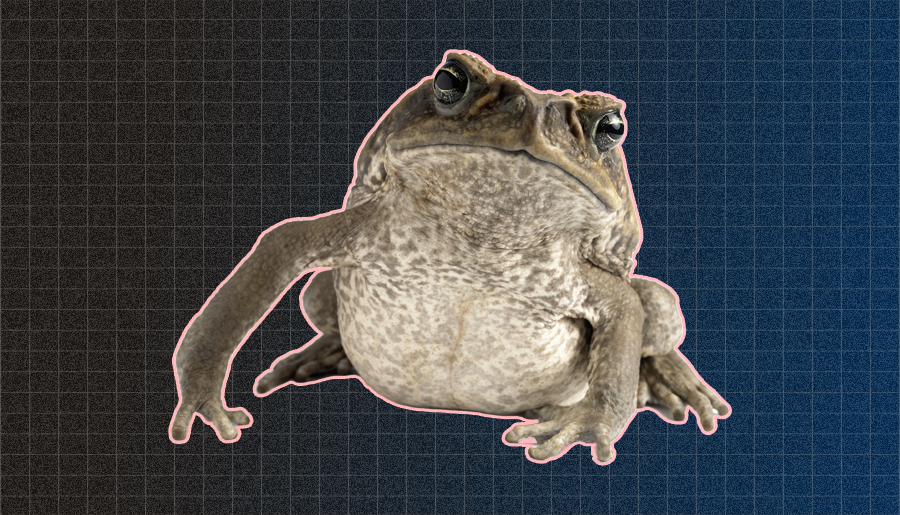In Australia, cane toads are less of an animal and more of a plague. They wreak destruction everywhere they hop. They are literally poison to both our native animals and doggos alike. Their croak is a signal of death for the local flora that they inhabit.
Therefore, when they escape the confines of Queensland, it’s rubbish news. And according to the ABC, this is exactly what has happened.
On a private Mandalong property an hour’s drive from Sydney, 19 toads have been caught.
“We’re still getting to grips with how big a problem this is,” stated NSW Department of Primary Industries’ (DPI) Quentin Hart. “And we won’t know that until we have a few weeks of community reporting, to see how far out this population may go.”
Moreover, how the toads got there remains a mystery. If they grew from tadpoles, they’ll be more difficult to eradicate. As Hart noted, “We won’t really know the true situation until we can assess whether cane toads are breeding this summer.”
Rick Shine, a professor at the Macquarie University’s School of Natural Sciences, further explained the situation. When chatting with The Guardian he said, “Nobodies going to get terribly excited about one or two, they’ll likely die a lonely death but with 20,000 eggs you get a lot of toads very quickly, and that’s bad news for the local predators.”
However, Nine News has explained that the current outbreak isn’t as dire as it could be. What’s more, Hart has backed them up.
“Time is on our side as cane toads are unlikely to be very active until the weather warms, which gives us the opportunity to find them before they leave their hiding places to breed,” he outlined.
Related: Climate Change Is Triggering a Global Collapse in Insect Numbers — Here’s How You Can Stop It
Related: Why Do Magpies Swoop? Here’s What You Need to Know About Magpie Swooping Season in Australia
How Is the NSW Government Reacting to This News?
Fortunately, the Minister for Agriculture, Dugald Saunders, isn’t being blasé about what is happening. He stated it was “critical” that the community report any and all “rogue toads.”
“Now is not the time for complacency,” asserted Saunders. “Cane toads pose a significant risk to our domestic and native fauna, and it is critical we keep them out of NSW.”
Read more stories from The Latch and subscribe to our email newsletter.

